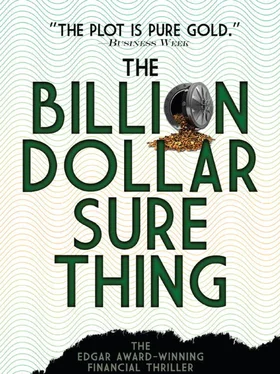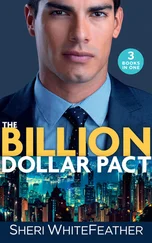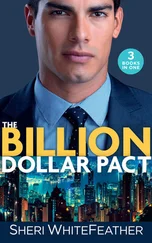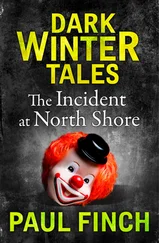The room was silent again.
“Dr. Hofer? Yes, well this is Weckerlin in Basel. I think Bernoulli telephoned you earlier and mentioned that I might be calling. Just one question. Can you verify that a certain Mr. Stanley Rosen of New York placed an order to buy $200 million of gold bullion through your bank this week? You can? Thank you. Sorry to have disturbed you. Yes, you will be hearing more from us.”
After he had hung the phone up, Weckerlin just sat there looking at Rosen.
“You see, Mr. Rosen, when I tell you that we know all about you, you must believe me.”
He reached into the suitcase for the red dossier and continued. “Now, let me tell you why you ordered $200 million worth of gold bullion. Because of what’s inside this dossier.” He waved it in the air.
“I tell you, I’ve never seen that package of papers in my life.”
“Where’s Lutz?” was the next abrupt question.
“Who?”
“Come on now, man,” this time in a harsh voice. “Stop trying to play stupid games with me. Rolf Lutz, general manager of Swiss Security Consultants.”
“I’ve never heard of him.”
“Rosen, look, we know. Do you hear me, we know. You both were staying at the Three Kings Hotel. We have witnesses to prove that you were seen together drinking at innumerable bars across the border on October 26. The manager of the hotel saw you two—”
“Oh, him! Sure I know Rolf Lutz. But why in God’s name do you keep beating around the bush like this. Has this guy Lutz done something? If so, believe me, I saw him but once in my life. We met by chance in the Three Kings and joined forces for a one-night stand. I’ve never seen him since, and have had absolutely nothing to do with the man.”
“Come now, Mr.—”
“Now, you come now, goddammit. I want to know— now —what’s going on here. I want to know right now why you have arrested me and what I am being charged with.”
“All in due time, Mr. Rosen.”
“Now.”
“If you insist.” Weckerlin rang a buzzer and almost immediately a girl appeared with two rather small white pieces of paper. Weckerlin waited until she had left.
“I have here a formal charge against you, Mr. Rosen. It says acute suspicion of economic espionage in violation of article 273 of the Swiss Federal Criminal Code. I must ask you to sign it; you may retain the copy.”
“I refuse to sign any such thing. This is preposterous. Who made this charge?”
“I ask the questions here, Mr. Rosen. And if you don’t want to sign, that’s fine. In any case, here’s your copy.” He pushed the paper across the desk. Stanley picked it up. All in German.
“Now, Mr. Rosen,” continued Weckerlin. “I think you must realize that this is serious. Very serious. The penalty for what you have done can go as high as ten years in prison. But it need not. The courts here are very fair. They always look most favourably upon men who cooperate with the prosecuting attorneys from the outset. It shows character. My suggestion to you is quite simple. Just tell me your story in your own words. Why you stole this dossier? How you did it? Who has been working with you on this project? I’ll have one of our secretaries take it all down, and then you can read it. I’m sure before the morning is out we will have a signed statement that ultimately will only help your cause.” He spoke this in the voice of a kind man. At the end, he folded his hands.
By this time Rosen had returned to the almost paralyzed state he had entered into at the time of his arrest, which seemed now, in his confused mind, to have happened long ago in a murky haze.
“Now please, Dr. Whatever your name is, I must be able to consult with a lawyer. I know nothing of what you are talking about. I understand nothing of what’s going on here. I need help. So please, let me talk to a lawyer.”
“I’ve already told you that is not possible. Perhaps next week, or the week after that. A lawyer could be of no possible help to you. He would tell you exactly what I am telling you. Give us a statement. Give us the truth. Now shall I bring in a secretary?”
There was no response. Weckerlin just sat there for two full minutes, silent, watching Rosen. Rosen sat slumped in his chair; his eyes seemed out of focus as he stared almost straight ahead into nothing but the blank wall behind Weckerlin’s desk.
“All right. Take him to his cell. Maximum precautions.”
The man standing by the door took Rosen’s arm and lifted him from his chair. With his other hand he reached toward the suitcase which still lay open on the desk.
“No,” said Weckerlin, “that stays here. And by the way, make sure Rosen and Bechot are in different cell blocks.” Then he switched into German for a final sentence: “ Lasst den Kerl heute Abend ein bischen braten. ”
Rosen disappeared through the doorway. Seconds later Bernoulli walked in.
“Could you hear everything all right on the intercom?” asked Weckerlin.
“Yes. It was all perfectly clear. Didn’t get too far with him, did you?”
“That’s normal. After twenty-four hours in solitary that will change.”
“Maybe,” replied Bernoulli. “The dossier, please.”
Weckerlin handed it to him, and then asked: “What in God’s name is in that dossier, Bernoulli? Sure, you told me that it would be there, and you told me about that gold Rosen bought. And you said there’s a tie-in. But what is it?”
“I’m afraid that will have to wait. They want this dossier in Bern.”
“Well, you can tell your friends in Bern that I’ve cooperated all the way, but they can hardly expect me to work in the dark for much longer.”
“I would not say you’re working that much in the dark. You know that this document was stolen from the home of the secretary-general of the BIS. And you know that Sammy Bechot did it and that Rolf Lutz put him up to it. And I think it is now equally clear that this man Rosen engineered the whole thing.”
“But why the top-secret treatment of the dossier itself?”
“Weckerlin, I repeat, orders from Bern. So let’s drop that subject for the moment. Lutz is much more urgent. You people tell me that they have just traced his movements to a small hotel in Zurich, the Hirschen. He stayed there last night and checked out around six-thirty this morning. Then nothing. His office in Geneva says they haven’t heard from his today. What now?”
“I think we’d better first make a check of the airports—all three of them.”
It was not until noon that they received the bad news. It was incredible but true. Lutz must have been on the same train as Rosen, coming from Zurich. Apparently he had gone directly to the Basel-Mulhouse airport from the station and just barely caught the flight to Frankfurt. The German police had been alerted. After lunch a Telex from the Kripo in Frankfurt told the rest of the story. Lutz had boarded a Lufthansa flight to Lima, Peru. It had left two hours ago. Obviously there was no sense contacting the Peruvian authorities. They didn’t even know the meaning of the word extradition in that country.
“Of all the bloody stupid carelessness.” It was the third time Bernoulli had said that as he sat in Weckerlin’s office.
“Don’t blame yourself,” said Weckerlin. “After all, we had to pick up Rosen first. He’s the key man, from what you tell me.”
“Yes, but we should have had Lutz under close surveillance the entire time. Ridiculous.”
The phone rang. Weckerlin picked it up and then handed it across the desk to Bernoulli: “It’s for you. Dr. Hofer himself.”
They talked for about five minutes, with Bernoulli doing little more than grunting. When it was over, he just leaned back in his chair and lit a cigarette. He was already on his second pack for the day.
Читать дальше












